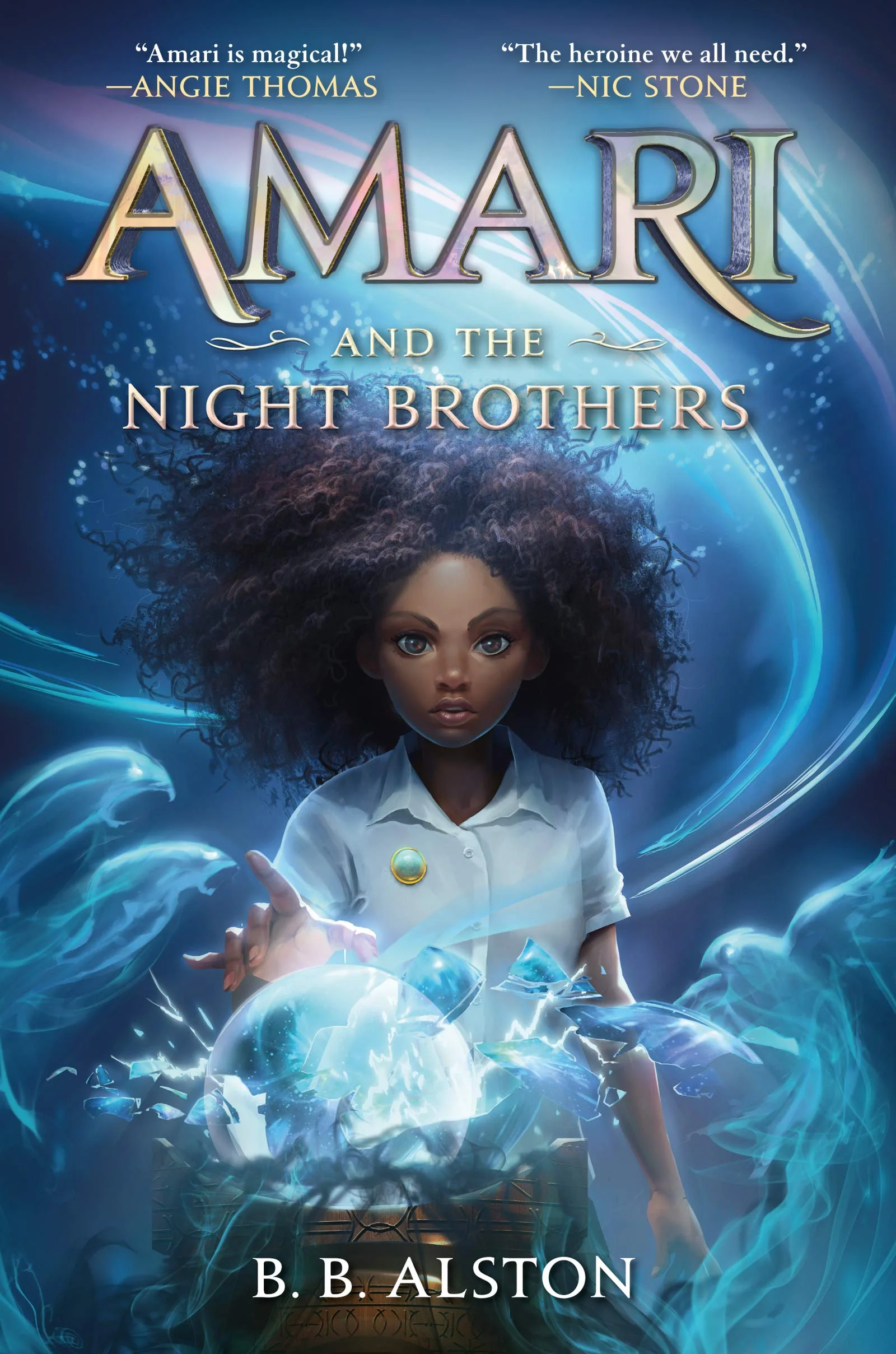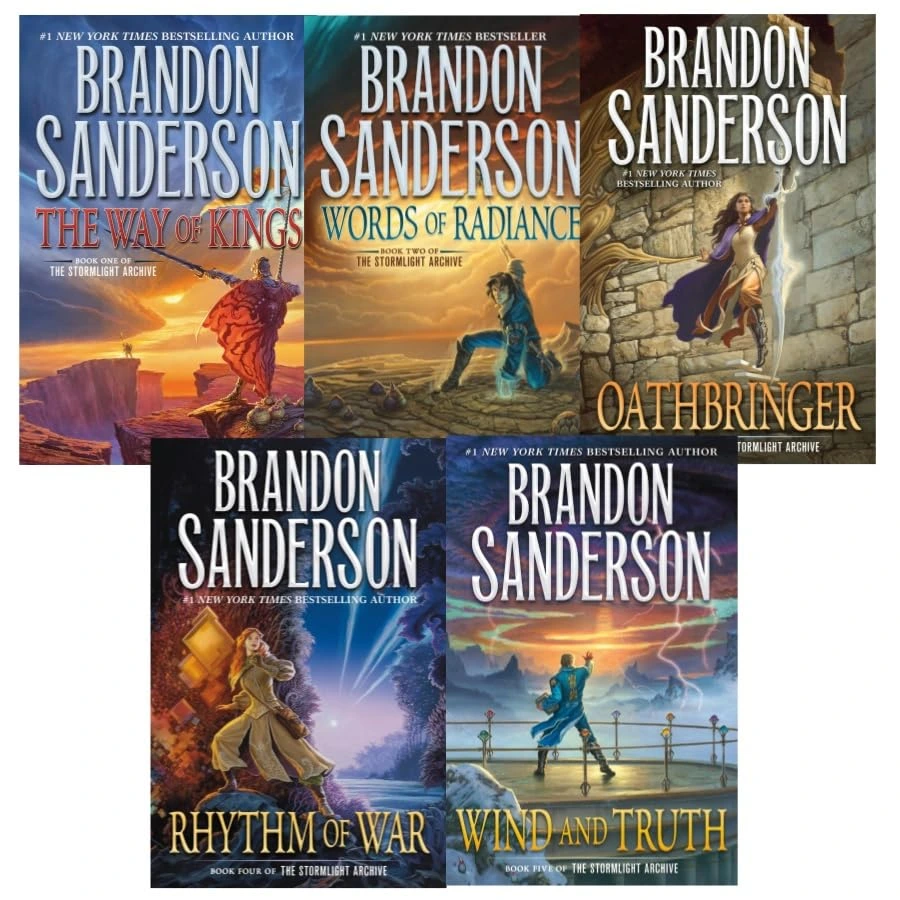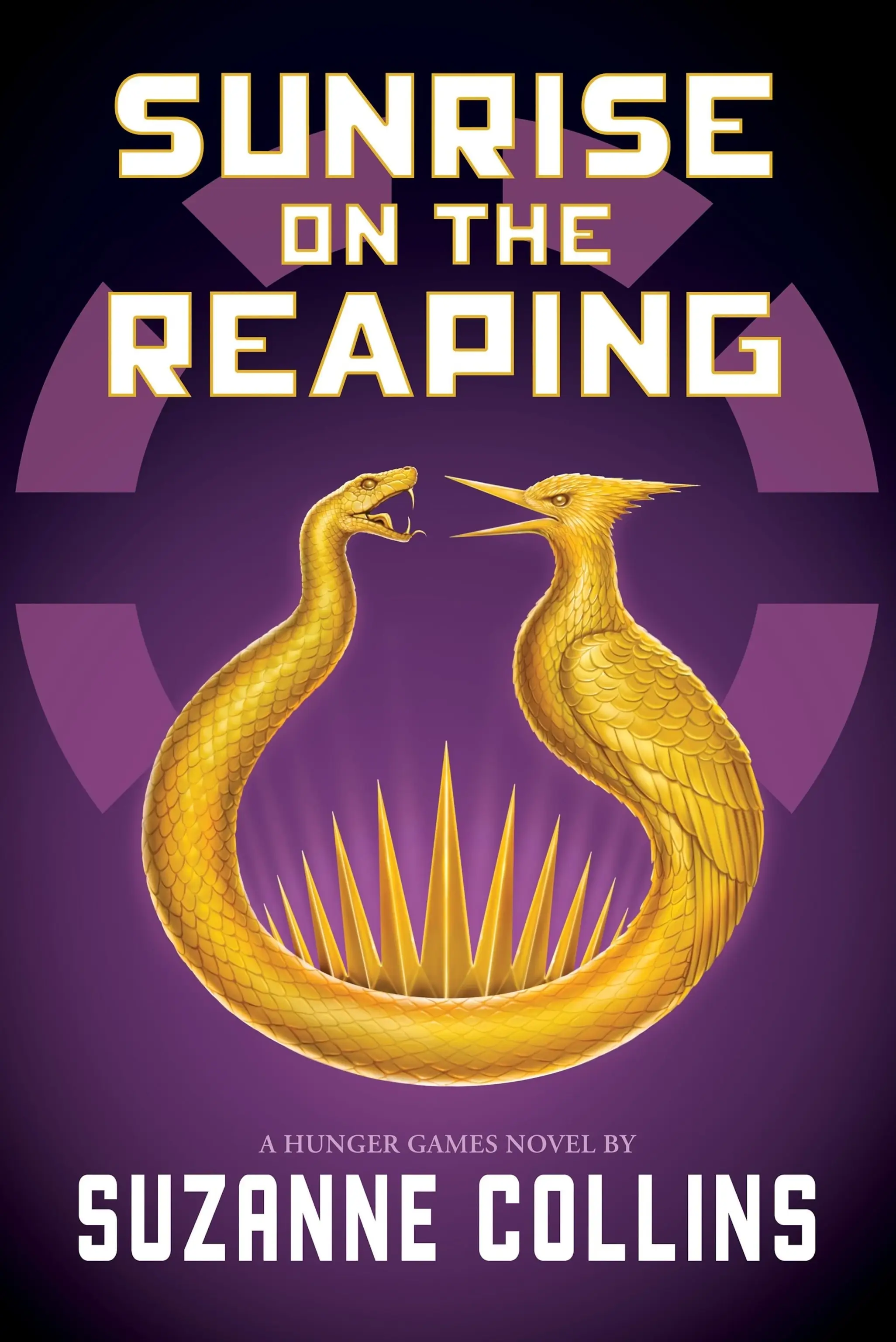This will be a shorter article/review than usual. I wanted to give my thoughts on these books before I forgot any details, but I’m really pressed for time at the moment!
So here are my thoughts on the first three books of the “Supernatural Investigations” series. I had to look up the name of the series, though, so I suspect most people don’t actually know the books by this name. Most know them by the first book—Amari and the Night Brothers—or simply as the “Amari books”.
And I guess that’s fitting, because the first book is easily the best in the series. It’s downhill from there.
Yes, as always, remember that I am not the “target audience” for these books, as I am a man nearing the ripe old age of 30. But I’m an author who writes a lot of children’s fiction and is therefore interested in what others are writing. My general taste in storytelling still aligns more with these kind of stories than what people think you’re supposed to be reading once you’re an adult ;)
The first part will contain no spoilers. Then, after the “spoiler barrier”, I’ll go into more spoilery details!
What’s the idea?
Amari’s brother has been mysteriously missing for a while. Then she suddenly receives a message from him that invites her to a secret organization: The Bureau of Supernatural Affairs.
As expected, she accepts. She enters a new (hidden) world and tries to fit in at this new school, where she’s instantly hated (for reasons I won’t spoil here). The first book follows her as she tries to survive “supernatural school”, while figuring out what happened to her brother (Quinton).
The second and third book mostly ditch the whole school thing and focus on a more Amari-centred adventure.
What did I like?
First of all, the writing style is (mostly) smooth. Simple sentences, good pacing, easy to follow, without dumbing it down too much or becoming too simplistic. (Or trying to be too fancy by using “slang” or whatever is currently “hip” with the kids …) Chapters are somewhat consistent in length and short.
In the first book, I feel, the plot makes a lot of sense. I think the pacing is very good, interesting events follow each other at a good pace, and we slowly get to see more of this massive Bureau over time.
The other books turn more into a “fetch quest”. They start by introducing a few things to grab/find/destroy/win, and the book simply hops around to get those things. Until by the end—you guessed it—they have all the things and we get a climax. The pacing here is still quite good, and I can see how that appeals especially to very young readers. There are many developments all the time, but rarely so many that it overwhelms.
The character work is fine. Some good ones, some meh ones. I found Amari one of the more bland characters, actually. Many of them just don’t get enough time, or enough agency, to really stand out anyway. But some characters, with the time they get, do make an impression or show some fun growth.
The author is full of fun ideas. Different wings of the Bureau that play with some other common piece of supernatural lore. Or entire divisions that mostly represent a funny joke. Elevators that have personalities and talk to you. This author’s version of the “sorting hat” from Harry Potter is also clever and fitting.
But that’s also where my negatives start …
What did I dislike?
Most ideas are barely developed, if at all. We get really quick mentions of something existing and that’s that. We get one scene with big divisions/characters/parts of this world, as if the author was ticking boxes to show them all at least once. And then we never see them again. Even when it would make a lot of sense to have them return all the time.
I can say, from experience, that this is one of the biggest traps for writers. It’s always better to pick a few things and focus on that for an entire book, instead of trying to show a little bit of everything.
Book 1 still had quite a good balance here. Books 2 and 3 mostly forget about the entire Bureau and just become a tangentially related adventure. And I found that disappointing, because of all the fun/interesting ideas the author opened but never followed through on. By the end of Book 3, I still have no clue about most of the world, the disciplines you could choose, what they actually do, names of teachers/division leaders, etcetera. Which makes the world hollow and any big moments lose their value.
In a similar way, Book 2 and 3 are mostly “Amari lies/is stubborn/disobeys orders, but somehow she always ends up being right”. Maybe this is just me, but I don’t find this interesting to read. It’s interesting to have a conflict, say, if Amari has a different opinion than her brother. To actually pursue that, explore it, show different perspectives. But in these stories, there are many really short “arguments” that lead nowhere. Then Amari does whatever she pleases (which is usually really, really stupid) and ends up saving the day. (I’ll give a specific example after the spoiler barrier.)
If you can’t tell already, I liked Book 1 a lot. It had the right balance of everything. It wasn’t perfect by any means—it had the same problems, just less visible/annoying—but it was solidly plotted, paced, and executed. But books 2 and 3 almost felt like an afterthought that completely went in a different direction.
Book 1 had some predictable “twists”. Book 2 and 3 were so confusing, hopping around from place to place, changing and executing new wild plans on a dime, introducing entire new elements of the world on a whim and then dropping them next chapter … that I turned off my brain entirely and just went along for the ride.
Conclusion
I guess, if I had to summarize my thoughts, I would look at that book series title: Supernatural Investigations. It’s so vague. It’s so broad. It’s a bit blend, and I really didn’t expect the book series to be called like this. (I was searching for something like “The Night Brothers Saga” or “Supernatural Magic for Dummies” or something more specific.)
The supernatural world could be so many things, that the stories struggle to introduce things one at a time, and really explore the new thing they just introduced. When Amari first arrives at the Bureau, we almost get this “training montage” where she describes every unique supernatural thing/creature she passes on the way. In just half a scene, it introduces more things than I could ever remember, and none of them are actually given more depth. It’s too much!
With such a large playground, the author did an amicable job finding a focus and writing a solid story. Especially for book 1. It surely introduces some fun ideas, it had some twists I truly found clever, and the “fetch quest” idea is a very effective way to get a high-paced plot that appeals to younger readers.
But I guess I would’ve liked more focus. Narrow that field to specific things. Have one book focused on this part of the supernatural world, then the next book on that part, and so forth. Actually stick with the Bureau for a few books, as Amari actually has a kind of “school life”, grows, learns new skills, discovers new fun subjects. And then the final books can actually show how much she learned as she applies it to a big battle to save the school (or whatever). And because you have lived inside that school for 5 books at that point, really know it in-depth, breathed the air, smelled its hallways, you care about losing the Bureau.
Because now, in all honesty, nothing at all after book 1 made me care.
Give book 1 a shot, it’s okay to pretty good. If you really like it, sure, read on! If not, then know that it doesn’t really get better.
Spoiler Barrier
Twists & Turns
As an example of a predictable twist, I’ll take the biggest “mystery” of book 1. The secret apprentice of the Night Brothers that helped them all along, that stole the Black Book + Key, etcetera.
Of course it was Dylan. Like … I could’ve told you that the moment Dylan took Amari aside to tell her some big secrets. Somebody who is supposed to hate her guts won’t do that. Even somebody who really liked Amari, knew her for years, would probably have kept that secret info back and not spouted it in the middle of a hallway. And Amari, as usual, didn’t actually give solid arguments for why she needed to know.
Then, when he actively tries to become her friend and all, I was 120% certain. Now, it’s not bad if readers can guess twists or solve mysteries in advance. It’s actually good, it means you gave enough hints and didn’t overcomplicate. But if they can guess at the start of the novel with absolute certainty, then the whole book just feels like wasting time trying to be “mysterious” and “adding tension” that just isn’t there. You just feel like you’re following the most naive and oblivious protagonist possible, and get increasingly misaligned with the core thread of the story.
I guess that’s the second summary of my thoughts: Amari has no solid reasoning for most of her actions and is terribly naive (without the story acknowledging or punishing that in any way), which means I care less and less about following her. It effectively means that random things will happen, Amari will make random decisions, and because this is a middle grade novel she will be magically right and be fine in the end. Is that interesting? Is that satisfying? I don’t think so.
Now, to be fair, let me give an example of a really great twist: the time stone from book 2. The book starts by introducing that the Congress Room, with all the powerful leaders of the Supernatural world, is frozen in time. The story regularly advences the “investigation” into what happened. They search the room, they ask around, they try to look at cameras, but find nothing. Who attacked them? What wizard could cast this spell? An intriguing mystery, a question I wanted answered.
The story also introduces the “time stone”, an artefact that can freeze time, and that it was only used once in the past (by the Night Brothers) in a panic. And that “wraiths” are magical creatures, born of curses, which constantly fade in and out of visibility.
Well, at the end of Book 2, Amari realizes the same thing happened here again. Their great elf and leader, Merlin, had the time stone in his possession all this time. It wasn’t some outside attacker that froze the Congress Room. It was Merlin himself. Holding the stone in his fist, hidden by his robes. He froze the room, in a panic, because wraiths attacked to try and overthrow him. He just happened to freeze the room at a moment when the wraiths attacking where faded out, invisible.
I really liked this. It’s a logical explanation that ties everything together. It’s also a simple explanation. A true twist. Instead of hiding information or making the mystery so complicated nobody could follow, the mystery is simple and the solution just requires a single Eureka moment. The realization that “we’ve been assuming it was an attacker … but actually someone inside the room froze themselves”
Let’s talk about Amari and her reasons …
The Great Debate
I’ll use book 3 as an example. Quinton has returned to Amari’s life. He’s basically calling the shots at the Bureau. And he constantly tells Amari to stay safe, stay back, don’t go wandering around alone and ruining their plan.
Amari, obviously, does not listen. She constantly goes out alone, creates extra problems, and … and then what?
We only get these snippets of Quinton being angry with her, and Amari being like “but I feel I’m right” as if that means anything.
This could have been a really strong central plot point of the story. She disagrees with her brother, and they try to convince each other to do something else. She has to fight the fact that her brother is more powerful/influential in the bureau than her. She has to find a place for the fact that her brother, whom she looked up to so much, might just be a human who has different views.
Could have been interesting. But the story just has these uninteresting arguments rechewing the same lines. (“I told you this!” “But I did that!” “Don’t do it again! You ruined our plans tonight!” “Sure.” -> does whatever she wants anyway with no consequences to her.) It’s only interesting if each of those scenes advances the thread. If it actually has consequences. If Amari, perhaps, learned to actually work together with her brother over time. If there was a huge consequence to her actions halfway the book, and she now saw the results of executing plans without thinking it through/communicating.
And I’m not saying Quinton is necessarily right here. I’m also certainly not saying that Amari has to be “perfect”—that would be wildly uninteresting, and unrealistic for a 13(?) year old girl thrust into extraordinary situations. But a “story” doesn’t magically appear by having two people disagree, and one turns out to be right at the end through sheer dumb luck, and then Quinton even apologizes for … for what? The story actually has to do something interesting with that and explore it.
As it was written, my thoughts were,
- Quinton could communicate better. For someone so capable and experienced—the best they ever had, the books keep saying—he doesn’t show any of that. Weird.
- Amari does not use logic and does not obey orders, which is a dangerous combination. She is incredibly self-centered, to a laughable degree. And I’m just not sure how the story tries to show this in a very positive light? (“I’m only here to find my brother”, “I’m doing whatever I want I don’t care about the Bureau’s plans to save itself”, “I’m going to ignore direct orders from people who care about me and have forty years more experience, just because I feel like doing so” Why even have other characters? Why even have a Bureau if none of that actually has much of an influence on Amari?)
- Oh, they’re just gonna keep letting her do her thing? Because she … asks nicely? No, wait, she doesn’t even ask nicely.
- Oh, she just asks everyone “do you trust me?”, and they do—and throw logic, protocol and sound planning out the window?
- Quinton has been very absent from book 3 for such a big character who finally returned. We have no clue what he’s doing, and why, and why Amari can’t be a part of it, and so forth. We just follow Amari as she makes a spontaneous decision each chapter and suddenly we’re at the end of the book and everything is resolved at once.
- This all feels random. Amari and friends are lucky to survive any of this and not be banned from the supernatural world five times over. Whatever. I guess she’ll end up miraculously saving the day anyway.
I dislike stories that are all like “do you trust me?” and “I feel I’m right!” Trust is interesting if it’s tested. If it’s explored. The most tense a story can get is when trust is broken, and now someone has to decide if they want to trust again. I’d argue basically all stories are about someone believing they’re very right about something … and then proven to be very wrong in some disastrous way, which changes their character.
This story does none of that. It’s just Amari doing random things and getting lucky with it, over and over. Any dialogue is very short and very pointless, as she’ll never change her mind, and no strong arguments are made. I was less and less interested as this went on. It might be great for fast-paced and action-packed plot, but it makes everything else hollow and pointless.
The Supernatural Vagueness
The Bureau has many fun divisions (or sections/jobs/roles/however you want to call it). This is great. I liked it whenever a new one was introduced. But, as stated, they just don’t get enough time. We hop around very quickly, which is far too little to actually remember them and what they do. There are also too many of them, which doesn’t help.
You see, I tried to write about these different sections here. I finished book 3 only yesterday! But … I just can’t remember the damn names. I know there was one about cover-ups. One with nature. One with memories or dreams, is that right?
Book 3 is all about “the despicable wonders”. It’s in the title. It’s the “fetch quest” thing the story goes for. But … I couldn’t tell you most of them. Sure, there’s the crown, that one was mentioned far more often. There was a knife too somewhere, and a lens. The wonders were simply mentioned and used far too little to actually have depth and make an impression.
Different species and characters are introduced … and I also couldn’t tell you much about them. If anything. There is too much. The supernatural world is too vague, too big, too ill-defined.
Different “social clubs” are mentioned basically once, in a big scene with too many details to track. And then they never return or become important again. I wouldn’t be able to name any of them.
These stories would have really benefitted from some simple restrictions. To narrow it down and give focus. As stated earlier, focusing on one specific part of the Bureau each book would be great. Following Amari for several years as she grows up and new subjects/challenges/roles unlock. Clear definitions of what can and can’t be done. Clear explorations of a specific species or sub-branch per book, nothing more. Leave any more fun ideas for spin-offs or “maybe write this other series later”.
They have teleporters, for example, which is almost always a bad idea :p Because you’ve removed one very important and interesting restriction from real life. Now anyone can be anywhere, whenever, however. Which means most problems have a laughably easy solution, and if they don’t teleport, then the characters feel dumb. It’s overpowered. It’s also never really … explained? Who has one and who doesn’t? Why not use it all the time? Can they be stopped/restricted? And Amari gets used to teleportation a bit too easily, now that I think about it.
Now … the stories are just one long chain of “I guess they can do that, sure” and “Oh that’s another part never mentioned before” and “Sure magic works like that now” and “Oh so they suddenly solved that with this new thing”. And that saddens me, because there’s some really strong core idea here, from a clearly capable writer. But I have no interest in reading any further books that come out, and I’m glad I can continue with something else. And I basically never say that about middle-grade fantasy novels.



